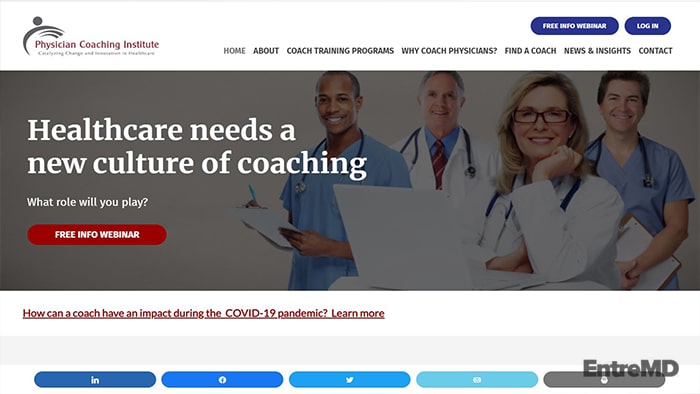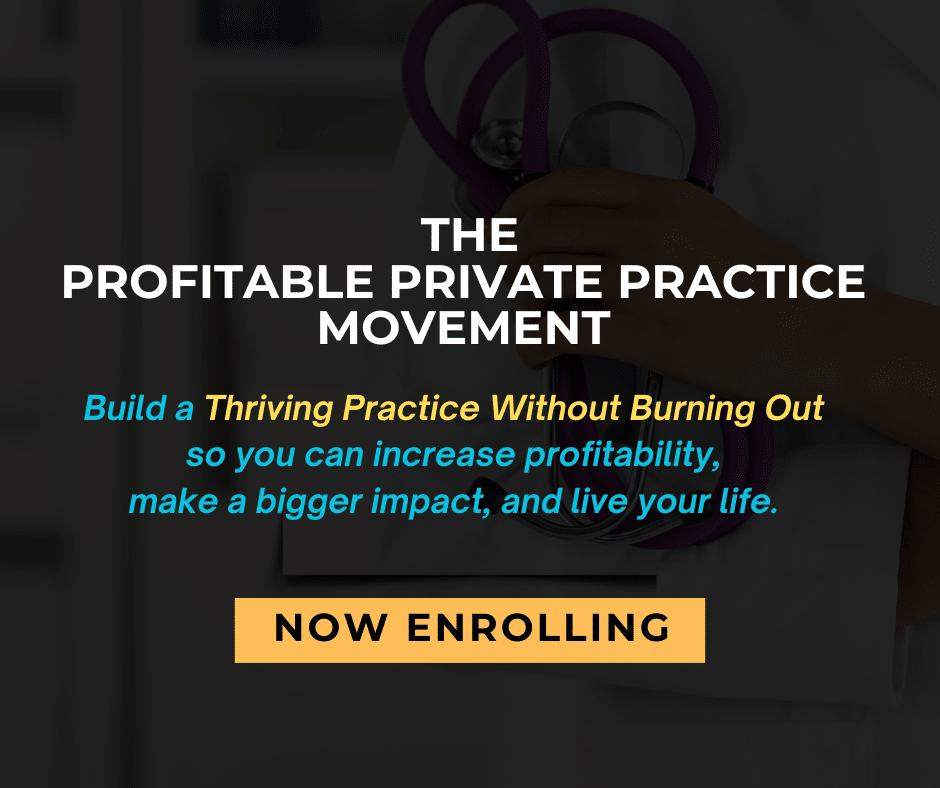Coaching has been around since the beginning of time. For millennia, the more experienced demonstrated and taught, the less experienced tried and learned.
Ancient Greek athletes were supported by former champions of the same sport while they practiced. The University of Oxford used the word “coach” as early as the 1830s to refer to a tutor who helped a student go from not knowing what they needed to know to pass an exam to having a good grasp on the material that would be covered in the exam.
Tim Gallwey was a nationally-ranked tennis player before he went on to captain his Harvard University team. Out of his experience as a tennis coach, in 1974, he wrote The Inner Game of Tennis. The name of the book is based on the fact that, as he wrote, “Every game is composed of two parts, an outer game, and an inner game.”
One of the best definitions of coaching I’ve read comes from Tim:
“Coaching is unlocking a person’s potential to maximize their own performance. It is helping them to learn rather than teaching them.”
This phenomenally successful book sparked the GROW model of coaching, which was developed by Sir John Whitmore and his colleagues in the late 1980s. Sir Whitmore is known as the “pioneer and godfather of coaching in the workplace” and co-founded Performance Consultants International.
I’m so inspired by how he defines coaching as: “unlocking people’s potential to maximize their own performance.”
Every Physician is a Wounded Healer
Chris Cantilena, writing at KevinMD.com, says, “every physician is a wounded healer.”
An MD, MMMI, and physician coach, he goes on to say:
“There is a bit of the wounded healer in all physicians. We endure physical, financial, and mental hardship in the process of learning our craft. We put aside our own needs and desires for the sake of our patients. When they need us, we go. If we are hungry or tired, or it is inconvenient, still we go. We look on this as simply what is needed; what is right. Some who know us and love us believe it’s heroic, and perhaps they’re right.”
The focus of his post is the importance of self-care for physicians, but it makes an equally compelling case for physician coaching. There’s clearly a desperate need for physicians to receive support through coaching.

If you’re wondering whether becoming a physician coach can make a difference, a pilot randomized clinical trial from 2019 (pre-pandemic) showed the effect of a professional coaching intervention on the well-being and distress of physicians.
You can read the fascinating report in full, but the conclusion it came to reads like this:
“The results of this randomized pilot trial suggest that organizationally sponsored professional coaching for physicians can reduce emotional exhaustion, improve [the] overall quality of life, and build resilience.
This intervention adds to the growing literature of evidence-based approaches to promote physician well-being and should be considered a complementary strategy to be deployed in combination with other organizational approaches to improve system-level drivers of work-related stressors.”
What is a Physician Coach?
The International Coaching Federation (ICF) defines coaching as:
“Partnering with clients in a thought-provoking and creative process that inspires them to maximize their personal and professional potential. The process of coaching often unlocks previously untapped sources of imagination, productivity, and leadership.”
Today’s coaching turns out to be asking effective questions and carefully listening to both what is said and what is left unsaid. Reflecting the answers back to the physician being coached is often a way to trigger awareness, which can uncover the practical steps needed to accomplish goals and overcome any obstacles.
A good physician coach is a sounding board on situations that are currently taking place (rather than issues from the past which may require counseling) and raises awareness and responsibility to “unlock and maximize performance.”
The GROW model I referenced earlier is an acronym for the four key steps in the GROW coaching model. Although there are many sources on how to become a coach, this one is such a powerful framework that it’s worth taking a closer look at.

Each letter of the GROW model stands for specific questions around four topics:
Goals are explored, and an inspirational goal is identified as a way to “drive success and keep energy and motivation high.”
A coach asks questions like:
- What is your inspirational goal?
- When do you want to achieve it?
- What do you want to get out of this coaching session?
- How will your life be better if you achieve this goal?
- What will your life look like when you achieve this goal?
- What will you think and feel about yourself when you achieve your goal?
Reality digs into the current situation and what internal and external obstacles stand in the way of reaching the goal identified in the first step.
A coach asks questions like:
- What have you done so far to achieve your goal?
- What stands in your way externally?
- What stands in your way internally?
Options outline what the individual has in their “toolbox,” whether these are strengths and skills or resources they could tap into. “The more imaginative [the] questions, the more likely the individual…may have a breakthrough insight.”
A coach asks questions like:
- What qualities and skills do you have to contribute to reaching your goal?
- How would you achieve this goal if time or money weren’t a factor?
- What options can you imagine would help you get there?
- Who could you ask to help you?
- What else could you do?
Will refers to agreeing to specific actions within a timeframe and then taking accountability and reporting back to the coach. This is the “barometer of success.”
A coach asks questions like:
- What actions are you going to take before we talk again?
- How committed are you to taking these actions on a scale of 1-10?
- If your commitment is below an 8, what would make it an 8 or higher?
While GROW “forms the backbone of coaching…it is not [all there is] to coaching. Along with this framework, you need to have a coaching mindset and use authentic coaching behaviors.”

A coaching mindset focuses on the person, not the situation or the problem they face. It’s interested in transformational conversations, not transactional conversations.
The difference between the two seems to be that while a transactional conversation tells or shows someone how to do A, B, or C, a transformational conversation helps someone understand what’s important to them and their values, beliefs, and inner thoughts. These are the things that drive one’s behavior. Identifying them is the first step to setting goals and creating actions to achieve them.
Authentic coaching behaviors include taking a collaborative approach, listening and empathizing, recognizing someone’s value, and creating and giving positive feedback.
Types of Physician Coaching
There are many different types of physician coaching niches.

When it comes to general coaching categories, you often hear these three broad categories:
- Health
- Wealth
- Relationships
What specialized expertise do you have? What are you good at? What do you know inside out? What can you talk about until someone’s eyes glaze over? Do you have the ability to help other physicians improve their health, wealth, and relationships?
Health

Examples of a health coach include:
- Physician burnout coach
- Health and fitness coach
- Transition to a retirement coach
- Mental health coach
Wealth

Examples of a wealth coach include:
- Executive coach
- Physician leadership coach
- Medical practice business coach
- Career coach
- Financial coach
- Entrepreneurship coach
- Leadership coach
- Performance coach
Relationships

Examples of a relationship coach include:
- Intimacy coach
- Spirituality coach
- Team coach
- Relationship coach
- Life coach
What it Takes to be a Good Coach
Most doctors are inherently curious and genuinely interested in people and their lives. This gives them a natural advantage in creating relationships that build trust. Trust is critical to developing a sense of psychological safety where the coachee can be honest with themselves and with you.
Only then can they come up with new ideas and experiment with what works and what might fail. We all know that learning from our mistakes is sometimes the best (and only) way to move forward.

Coaching skills:
- Listening
- Asking effective questions
- Adaptability
- Influencing with integrity
- Giving constructive feedback
- Showing empathy
- Building rapport and relationship
- Challenging compassionately
Behaviors:
- Is always learning
- Encourage self-discovery
- Can envision the big picture
- Act as a role model
- Be humble
- Learn to know your client
- Be non-judgmental
- Use humor appropriately
- Illustrate that you value diversity
- Has innovative ideas
- Be observant
- Show tact and diplomacy
- Always maintain confidentiality
- Stay focused
- Seek to build the client’s confidence and self-esteem
- Show other sources of support to the client
- Critically evaluate one’s own effectiveness
How to Become A Physician Coach
Currently, coaching is an unregulated industry. Having said that, there are several coaching certification programs available throughout the U.S. Here are links to some of the country’s most recognized physician coaching programs:
The Physician Coaching Institute developed the “first of its kind specialized physician coaching training for professionals who want to develop expertise to coach physicians, clinicians, and the healthcare team.”
They offer three training programs, including their six-month flagship program, the Certified Physician Development Coach. They are accredited by the International Coach Federation.
SurgeonMasters offers physician coach training on-demand and grants an Associate Certified Coach (ACC) with the ICF. Their course includes video review, reading, and “live online, interactive practice coaching sessions with physician colleagues and SurgeonMaster coaches.”
The training is delivered in eight interactive, 7.5-hour modules worth 24 AMA PRA Category 1 credits and 60 ICF continuing coach credits. You’ll get a Physician Coach Training certificate, 55 ICF core competency hours, 5 ICF resource development hours, and 30+ hours of coaching practice.
RechargedMD offers two levels of physician coaching training. Their intensive introductory course “provides 30 hours of in-depth coaching tools in an engaging group setting.” The RechargedMD Advanced Coaching Certification Program builds on the fundamentals of the first course.
The Center for Executive Coaching is an ICF-approved training program that trains and certifies executive and leadership coaches from major organizations worldwide. Their program “emphasizes practical, measurable results for executives, managers, and other leaders.”
They promise to “give you tools and methods to coach clients from start to finish, set up a successful practice, and stand apart in the field.” With two decades of experience, they confidently say that their “business development guidance is the best in the industry.”
Physician Coaching Alliance offers coaching to physicians as well as a Coaching 101 Course. Their website offers minimal information on the course but encourages you to send an email.
The course introduces physician coaching and answers questions like whether you should be certified, malpractice insurance, and how to start and take the first steps.

There are also several excellent books available on Amazon on how to become a coach. Every physician coach should have these on their bookshelves:
Excellence in Coaching: Theory, Tools, and Techniques to Achieve Outstanding Coaching Performance was published with the Association for Coaching. Author Professor Jonathan Passmore is a business psychologist who’s written more than 100 peer review research papers and book chapters. He has five degrees and an international reputation for his work in coaching, change, and leadership.
The Inner Game of Tennis: The Classic Guide to the Mental Side of Peak Performance by Tim Gallwey was originally published in 1994. With 79% of readers giving it a 5-star rating, this book has proved to work for anyone wanting to win at the “inner game.” Available for $10.03 on Kindle or paperback for $14.99.
Gallwey, a “leading innovator in sports psychology,” digs into how to focus your mind on overcoming nervousness, self-doubt, and distraction; find the state of ‘relaxed concentration’ that allows you to play at your best, and build skills by smart practice, then put it all together.
Coaching for Performance Fifth Edition: The Principles and Practice of Coaching by Sir John Whitmore released an updated 25th-anniversary edition in 2017. Almost 1,500 readers gave it a five-star rating, with one reviewer writing, “I read this as a ‘jumping off point in my introduction to coaching…Full of insights and actionable steps, it is a must-read for the aspiring coach.”
This edition has brand-new practical exercises and coaching dialogues. It also includes a new chapter on measuring the benefits of coaching as a return on investment. A lot of power for a book that costs $16.99 or less.
There’s never been a better time to live life and practice medicine on your terms than now. And becoming a physician coach is one of the most life-changing ways to help other physicians still in the trenches as they care for their patients.
One last quote from Sir John Whitmore:
“Whether we coach, advise, counsel, facilitate, or mentor, the effectiveness of what we do depends in large measure on our beliefs about human potential.”


